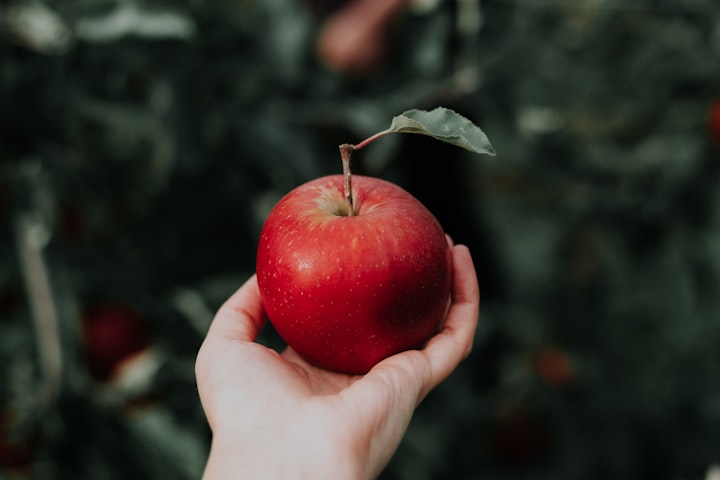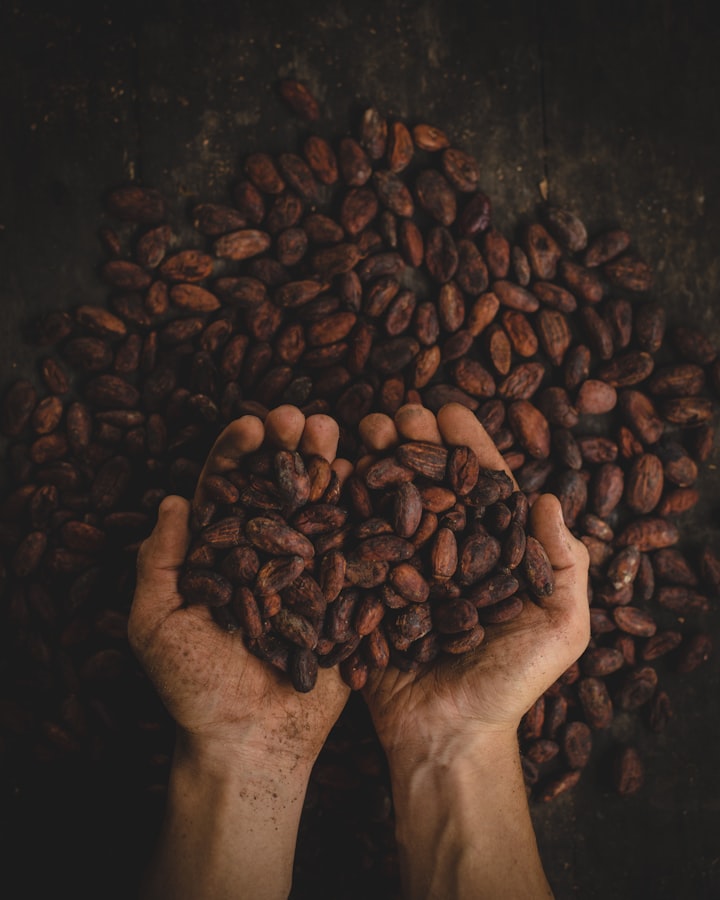Episode 1: Guilt, God, and The Apple Aftermath
Take What Resonates Blog

A Spiritual and Philosophical Op-Ed Series
Let's start with a (somewhat) funny anecdote! In church, the priest tells us that missing church on The Sabbath is a mortal sin. The worst kind of sin. The type that, akin to taking a life, will certainly send your soul to Hell rather than Heaven. However, he also said, that when you don't know this information, it is NOT a mortal sin. So my mother responded, “Then why do you keep telling us?!”
Every time we hear the story of Adam and Eve in The Garden of Eden, the emphasis is placed on their poor choices (eating the forbidden fruit) and the ultimate consequences (getting kicked out of paradise). However, every time I've listened to the whole thing, what registers with me most is that God was upset at them for eating the fruit, not because he greedily wanted all the knowledge to himself, but because after they ate the fruit, they felt guilt about their actions (knowing that they did something wrong) and they felt shame about being naked (and hurried to hide their bodies). God didn't want them to have these feelings, which is why he told them not to eat the fruit of knowledge. He knew it would cause them dissatisfaction in their lives.
What I'm driving at is this: God doesn't want us to be ashamed of our bodies or our lives. Before Adam and Eve ate the fruit, they did what they wanted to do all day, including making love, sitting, talking, gardening, or playing with animals. They acted in a way to make their bodies and brains feel good. They didn't think anything was wrong with their bodies or how they behaved until they ate the fruit of knowledge (The Apple). He (or “It”, as is a more accurate pronoun for the Creator, since technically there is no assigned gender for such a powerful Source) doesn't want us to feel guilt. God wants us to be happy and lighthearted creatures, who share kindness, courtesy, compassion, and love of all sorts, rather than being filled with continual anxiety that we are doing something wrong.
Most of the Ten Commandments are actually for our own benefit (and the ones that aren't directly, are still beneficial indirectly). Don't kill others, because then you'll feel sad, guilty, and have no one to spend time with. Don't steal, because then you'll feel guilty and no one will want to spend time with you. Don't be jealous of other people, because it only ever leads to unhappiness (and the desire to steal or kill, see above). Check in with God regularly, because The Creator cares about its creations (just like parents want you to check in with them because they care about you and want to hear about your life, or should – I know not all parental dynamics are as blessed as mine). On that note, for the exact same reasons (and because they have been around longer than you have), honor your parents (and elders and family members) by sharing time with them and caring for them. Treating the people around you well, means that your life will be filled with more happiness and love – rather than rejection, sadness, loneliness, and anger. Karma is a bit of a self-fulfilling prophecy due to human psychological trauma responses. If you do something bad, you feel guilty, then you punish yourself subconsciously. The cycle continues.
Various religions and spiritual practices around the world share these beliefs, though they call them by different names. Children in Egypt who believe in the deity Ma'at learn (or learned – I'm not sure if this is a current belief system or not) that lightness of heart is the only way to get through the many realms after death to reach Osiris, Osiris being comparable to Heaven/meeting God. From my understanding and studies, Ma'at judges your worthiness for the post-death journey based on the lightness, and innocence, of your heart. If your heart is full of guilt and shame for the mistakes you've made in your life, how can it be light? This is also why the Christian religion focuses on forgiveness. Forgive each other. Let God forgive you – but don't forget to forgive yourself, also!
This is a very important part of forgiveness that doesn't get covered often enough. Self-forgiveness and self-compassion are the basis of psychological and emotional trauma healing. Science and spirituality do not have to be so completely separate, though modern social customs may make it seem necessary.
Sacral energy and sexuality are often demonized as the opposite of spiritual faith. Many religions make it seem that to live a spiritual life, one cannot be focused on a life of sacral pleasures. No wonder we're all so high-strung! Repression of sacral energy causes all kinds of emotional and physical trauma – from difficulty connecting with other people one on one (in any type of social construct, not just dating and intimacy) to joint pain on the dance floor.
There's a lot more depth to the sacral energy, psychological, and emotional trauma healing involved here than I am able to cover in one blog post, so I won't attempt it further.
Big Point/TL;DR: No one has to be ashamed or guilt-ridden about making mistakes or making decisions for better mental health that appear to vary from “what is written in the Bible” or “what the Church teaches”. God loves us and wants us to be happy. Don't live your life for worry. Live your life for love!
About the Creator
Gabrielle Lamontagne
As a travel-sized, karaoke fiend and Christian witch, I hope you find my spiritual insights and travel experiences useful, amusing, and compassionately written!






Comments
There are no comments for this story
Be the first to respond and start the conversation.